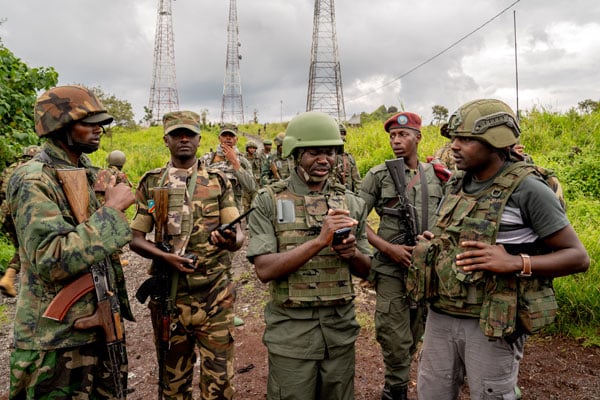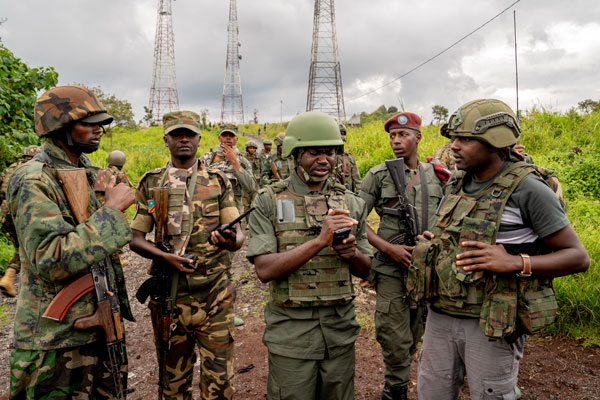EU 'firmly condemns' Rwanda military in east DR Congo

M23 rebels talk before leaving their position in Kibumba in eastern Democratic Republic of Congo on December 23, 2022. PHOTO / AFP
What you need to know:
- DRC and rights groups say the M23 militia has committed murder, rape and war crimes in recent months.
- An East African regional military force has taken over some areas previously occupied by the M23 since December.
The European Union on Friday blasted Rwanda's military presence in eastern Democratic Republic of Congo and support of Tutsi-led M23 rebels accused of multiple atrocities against civilians.
The M23 has captured swathes of territory in the region, near the borders with Rwanda and Uganda, since taking up arms in late 2021 after years of dormancy, wielding violence that has displaced hundreds of thousands of people.
"The EU firmly condemns Rwanda's support to M23 and Rwanda's military presence in Eastern DRC, as revealed in the UN Group of Experts reports," EU foreign policy chief Josep Borrell said in a statement.
DRC and rights groups say the M23 militia has committed murder, rape and war crimes in recent months.
UN experts, the DRC government and several Western nations including the United States and France accuse Rwanda of actively backing the M23, despite denials from Kigali.
Much of eastern DR Congo is plagued by dozens of armed groups, a legacy of regional wars that flared in the 1990s and 2000s.
The UN has had a peacekeeping mission, MONUSCO, in DR Congo since 1999.
Borrell reiterated an EU "urgent demand that Rwanda withdraws its troops from Eastern DRC, ceases immediately all support to M23 and uses all the means at its disposal" to press the group to abide by peace processes agreed under the auspices of the East African Community and by Angola.
An East African regional military force has taken over some areas previously occupied by the M23 since December.
The DR Congo must also "cease immediately" support of militia it backs, such as the FDLR, and protect civilian populations, Borrell said.
The FDLR is a majority Hutu outfit founded by members responsible for the genocide of Tutsis in Rwanda in 1994. It is seen as a threat by Rwanda's current government, which has used its existence to justify past interventions in DR Congo.





